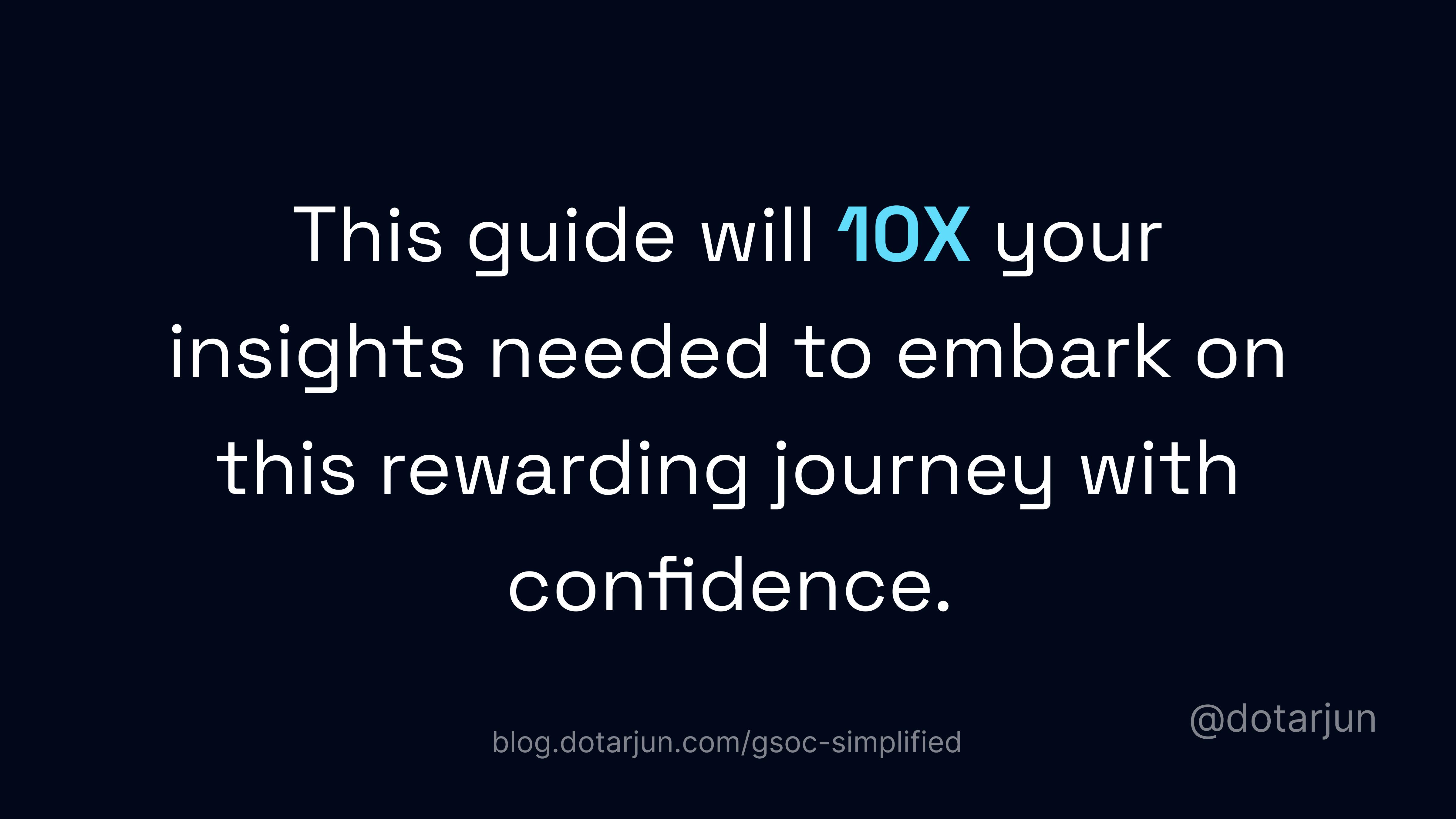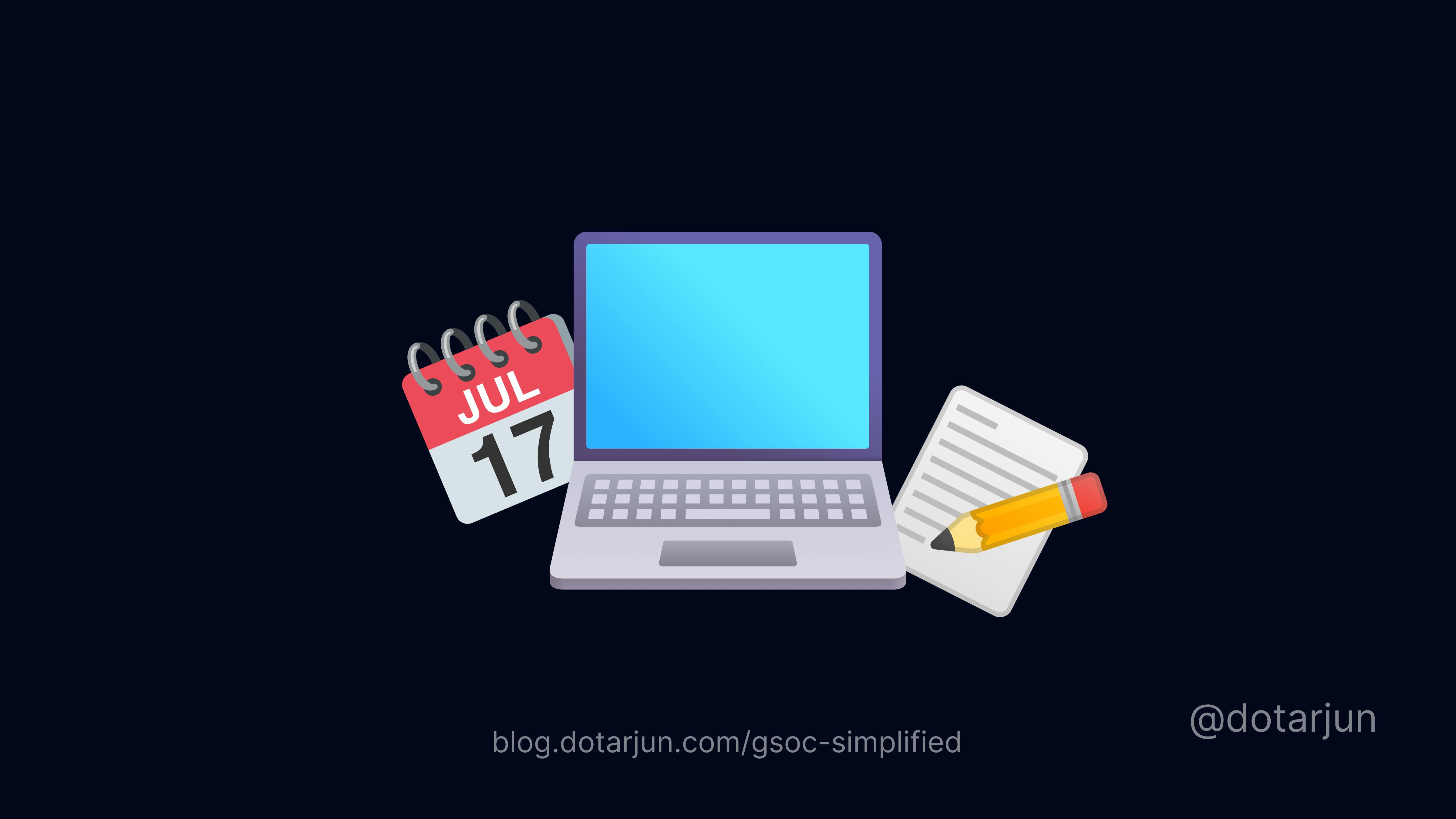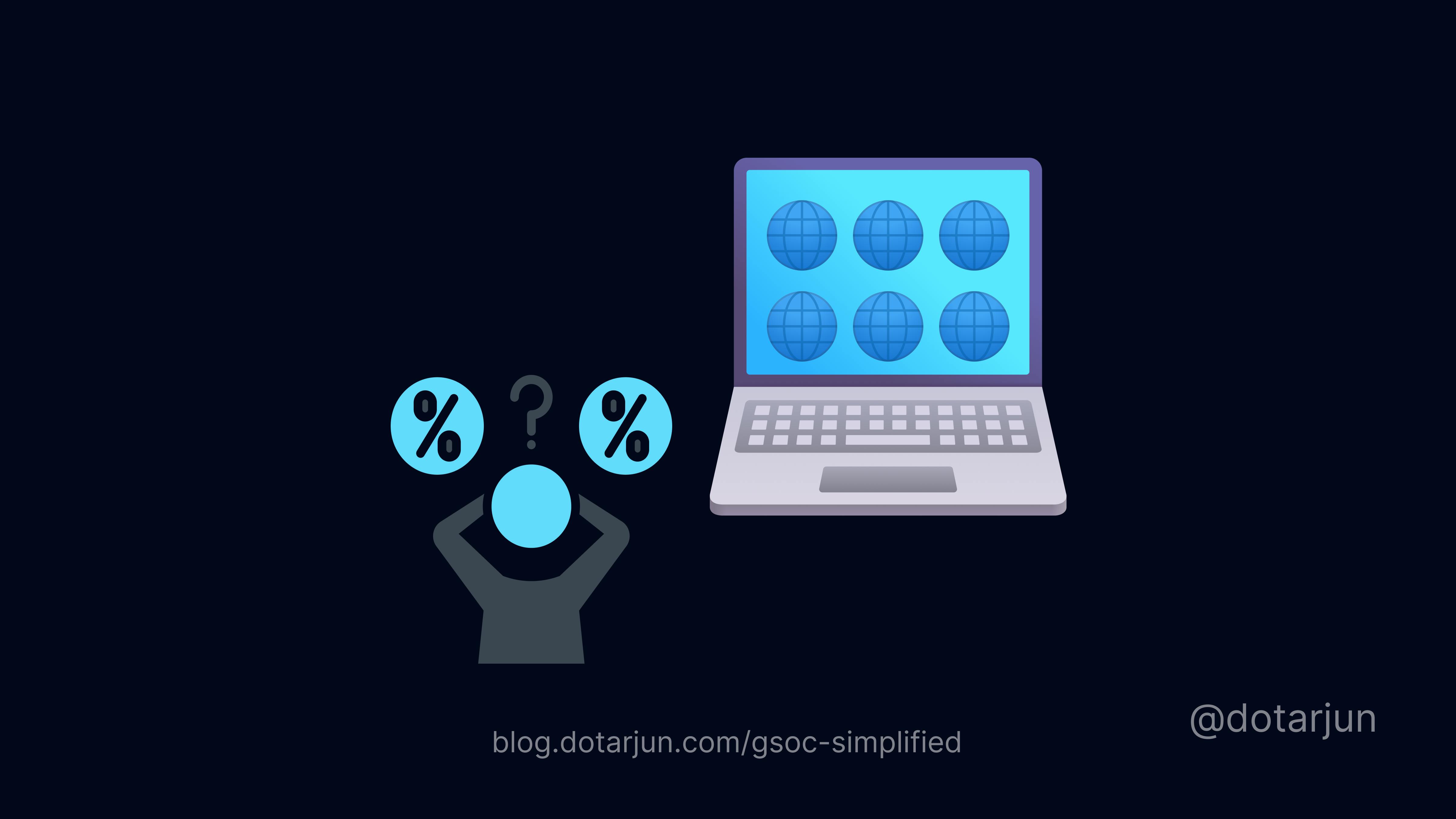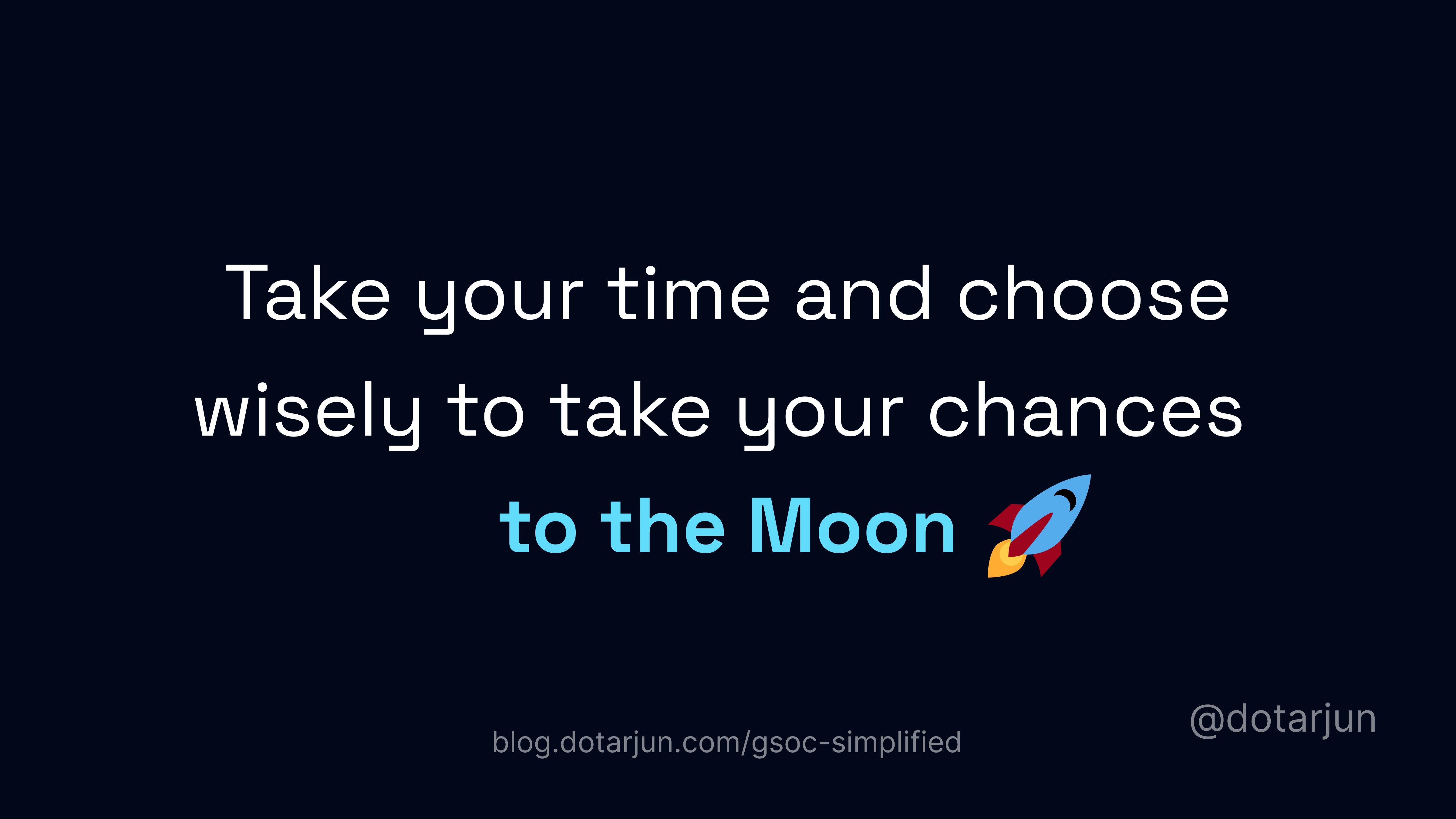Google Summer of Code Simplified
Your best shot at learning, growing and building networks in the industry.
What the F#$@ is GSoC?
Google Summer of Code (GSoC) is an international annual program where Google awards stipends to students who successfully complete a coding project during the summer for various Open Source software projects. Since its inception in 2005, GSoC has been a launchpad for student developers, providing them with an opportunity to immerse themselves in real world software development scenarios under the guidance of experienced mentors from the global programming community.
Participating in GSoC is not just about enhancing coding skills, it's a unique journey that introduces novice programmers to the nuances of collaboration, open-source culture, and professional coding etiquette. It's a transformative experience that can set the foundation for a promising career in technology. However, the path to being selected for GSoC can seem daunting to many aspiring participants. With thousands of applicants from around the world, standing out and securing a spot in this prestigious program requires careful planning, research, and dedication.
In this article, I aim to demystify the application process and provide clear strategies to help you not only get selected for GSoC but also make the most of this incredible opportunity.

Understanding the Application Process
The application process for Google Summer of Code can be complex, but understanding it thoroughly can significantly enhance your chances of acceptance. The journey begins with selecting a participating open source organization and submitting a project proposal that aligns with both your interests and the organization's needs.

Here's how to navigate the process effectively:
Research and Selection: Begin by researching the list of organizations approved by Google for the Summer of Code. Each organization has its own set of proposed ideas and requirements. It's crucial to select an organization that not only aligns with your skills but also resonates with your passion for coding and open source contribution.
Engagement and Contribution: Once you've identified your preferred organizations, start engaging with their community. Join their communication channels, understand their codebase, and start contributing, even if it's minor fixes or documentation improvements. This shows your genuine interest and initiative, making your application stand out.
📛Always make meaningful contributions, DO NOT spam unnecessary PRs.Proposal Drafting: Your proposal is your way in. It should be detailed, well researched, and tailored to the organization's needs. Highlight your previous coding experiences, your understanding of the project, and how you plan to achieve the objectives laid out in the proposal timeline.
Feedback and Refinement: Before submitting, seek feedback on your proposal from community members or mentors within the organization. Be open to suggestions and make necessary adjustments. A well polished proposal demonstrates your commitment to the project and your ability to collaborate and take constructive feedback.
Final Submission and Follow Up: Submit your proposal before the deadline and ensure to follow up with the organization for any updates or additional information required. Staying proactive throughout the process can significantly impact the final decision.
Remember, the key is to showcase your passion for coding, your willingness to learn, and your commitment to contributing to the open-source community.
Selecting the Right Project and Organization
Choosing the right project and organization is a pivotal step in your Google Summer of Code journey. This decision can significantly influence your experience and opportunities for learning and development. Here's how you can approach this critical phase:

Align Your Interests and Skills: Start by listing your interests and evaluating your skills. Look for projects that not only ignite your passion but also match your technical abilities or areas where you want to grow. Working on something you're enthusiastic about can be incredibly motivating and enhance your overall GSoC experience.
Research Organizations: Spend ample time researching each organization's mission, previous GSoC projects, and their community culture. This will help you understand their expectations and whether their environment is a good fit for your working style and learning objectives.
Engage Early: Don’t wait until the application period starts. Engage with your chosen organizations early by contributing to discussions, fixing bugs, or adding small features. This shows your genuine interest and commitment and provides a chance to get accustomed to their codebase and workflows.
Seek Mentors' Guidance: Once you have shortlisted a few organizations, reach out to potential mentors for guidance. They can offer invaluable insights into the project and what the organization is looking for in a successful candidate. Their feedback can also help refine your project proposal.
Evaluate the Learning Opportunity: Finally, consider the learning opportunity each project offers. Opt for projects that provide a good balance between challenging tasks and achievable goals, ensuring a productive and enriching summer.

Tips for Crafting a Winning Proposal
Crafting a winning proposal for Google Summer of Code is not just about showcasing your coding skills. It's about demonstrating your understanding of the project, your approach to solving problems, and your ability to communicate effectively.
Here are some tips to help you create a standout proposal:
Understand the Project Requirements: Start by thoroughly reading the project's description and identifying its objectives. Understanding the scope and the expected outcomes is crucial for tailoring your proposal to meet the organization's needs.
Detail Your Technical Approach: Clearly outline how you plan to tackle the project's challenges. Include a step-by-step breakdown of your approach, technologies you will use, and how they will help achieve the project goals. Be realistic and consider any potential obstacles you might face.
Set a Clear Timeline: Provide a detailed timeline for your project, including milestones and deliverables. This shows that you have thought through the work process and are organized. Ensure your timeline is realistic and leaves room for testing and revisions.
Demonstrate Previous Experience: If you have relevant experience or have contributed to open-source projects in the past, highlight this in your proposal. Include links to your code, pull requests, or any other relevant work that showcases your skills and dedication.
Engage with the Community: Mention any interactions you've had with the project's community or any contributions you've made. This demonstrates your commitment to the project and shows that you are already familiar with the community's norms and expectations.
Keep It Clear and Concise: While detail is important, avoid unnecessary jargon and keep your proposal clear and to the point. Make it easy for the mentors to understand your ideas and see your enthusiasm for the project.

By following these tips and putting in the necessary time and thought, your proposal will not only address the project's needs but also highlight your skills and your commitment to contributing to the open-source community.
Beyond GSoC: Final words
Participating in Google Summer of Code is a stepping stone into the vast world of open source software development. By understanding the application process, choosing the right project and organization, crafting a compelling proposal, and making the most of the program, you've taken significant strides toward enhancing your skills and expanding your network.
As you reflect on your GSoC journey, remember that the experience gained, the relationships built, and the contributions made extend far beyond the summer. Leverage this unique opportunity to further your understanding of software development, collaboration, and community engagement. The skills, knowledge, and connections you've acquired will serve as invaluable assets in your future endeavors, whether in open source projects or professional pursuits.
Continue contributing to open source communities, leveraging the momentum from your GSoC experience.
The journey doesn't end here. It's just the beginning.
